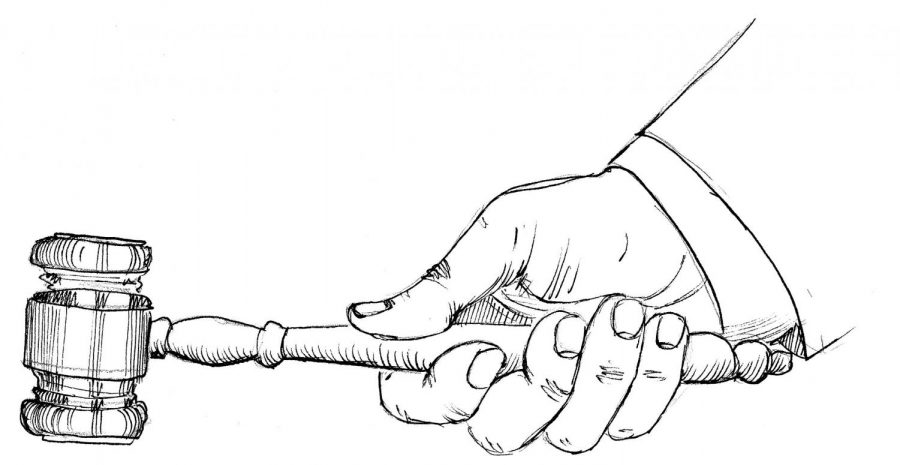Getting fined by a person in sweats
November 1, 2017
In light of the Richter case, we’re taking a closer look at student rights.
According to the code of student rights and responsibilities, “the University recognizes the right of all students to engage in discussion, to exchange thought and opinion, and to speak, write, or publish freely on any subject, in accordance with the guarantees of the United States and Vermont constitutions.
“This broad principle is the cornerstone of education in a democracy.”
That’s it. Essentially: our student rights are our citizen rights.
While we appreciate UVM’s commitment to not limit our freedom, students are left with an unclear guide to what rights we are afforded in student conduct proceedings.
According to the code, “Prohibited conduct includes physical harm or words or behavior that has the purpose or effect of creating an intimidating, hostile or demeaning environment that substantially interferes with another’s ability to participate in or realize the intended benefits of educational or employment opportunities, peaceful enjoyment of residence, or physical security and which is not protected by the First Amendment.”
But who makes these calls? Who judges these cases on this broad principle of the constitution?
“A professional staff member designated by the Center for Student Ethics and Standards to hear a case or a graduate student who is trained and qualified to adjudicate undergraduate student cases under this Code.”
The hearing officer need not be a lawyer. They need an unstated level of ethics training to punish the accused.
The result: unfair trials adjudicated by some late guy in sweatpants.
It is disturbing; the sweatpants-clad employee runs a trial with real consequences. And we don’t know if we’re being tried fairly or what our rights are.
We acknowledge that college life prepares us for the real world. It has extra boundaries to coax us toward being better people.
We call on UVM administration to evaluate the student code and its real penalties and reconsider if it is realistic in its process and punishments.
Is this preparing students for the real world?








